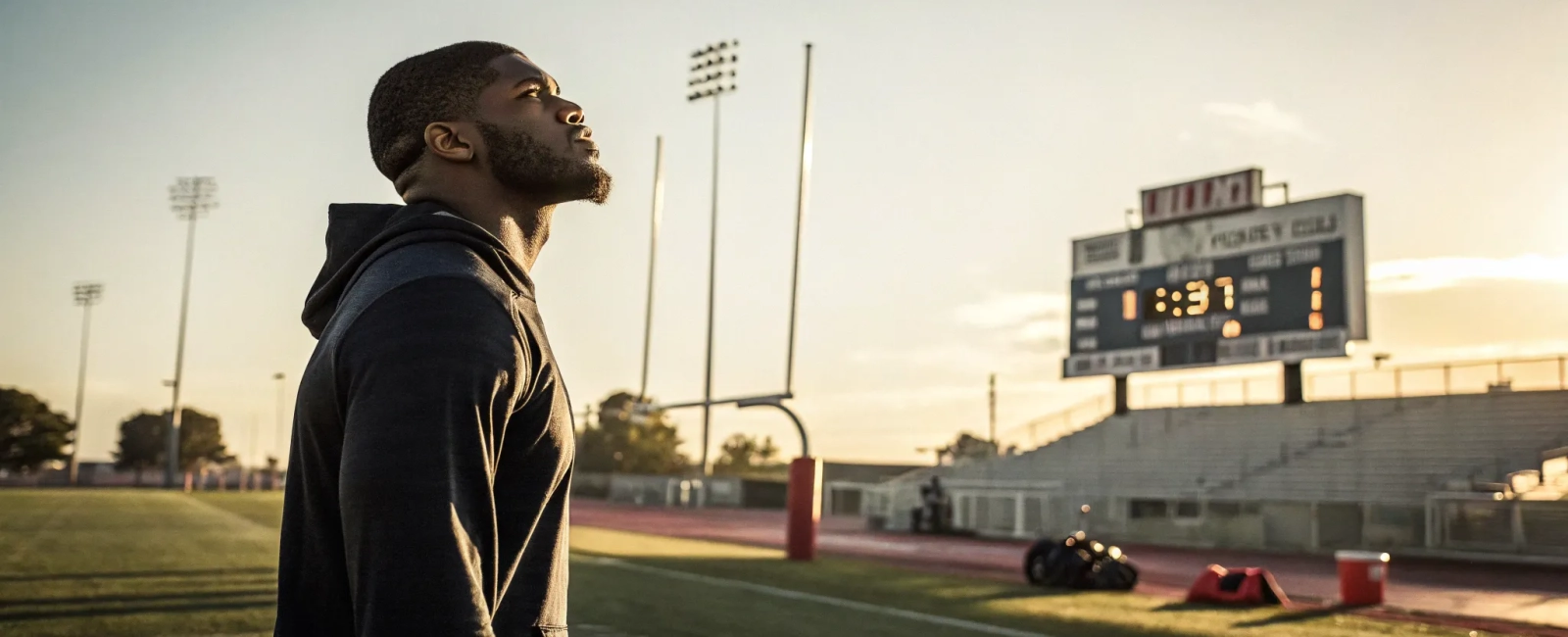How Elite Athletes Transform Loss into Triumph

Ever found yourself wondering how top athletes bounce back after a tough loss?
The Art of Turning Defeat into Motivation
We’ve all been there—the final whistle blows, the scoreboard isn’t in our favor, and that sinking feeling sets in. But here’s something interesting: elite athletes seem to have a superpower when it comes to handling defeat. Instead of letting a loss define them, they use it as a springboard for their next big win.
Seeing Losses as Lessons, Not Just Letdowns
Rather than getting stuck on what went wrong, these athletes shift their focus to what can be improved. It’s like they’re constantly tweaking their game plan, always on the hunt for that extra edge. They dive into the nitty-gritty of their performance, pinpointing areas where they can level up.
For instance, instead of brooding over a missed shot or a dropped pass, they might ask themselves, “What was I doing when I nailed that play earlier?” By starting with what they did right, they keep their confidence intact. Then, they tackle the tougher questions, figuring out where things went off track.
Avoiding the Trap of Overthinking
One of the biggest pitfalls after a loss is getting caught in a loop of self-doubt. It’s like replaying the same scene over and over again in your head—a surefire way to mess with your confidence. Elite athletes sidestep this by staying objective. They acknowledge their mistakes without letting them overshadow their achievements.
This approach helps them avoid what’s known as “choking” under pressure. By keeping their minds clear and focused on improvement, they’re less likely to let previous errors haunt them during high-stakes moments.
Self-Compassion: The Unsung Hero in Athletic Growth
Now, it might sound a bit touchy-feely, but giving yourself a break can make a huge difference in how you perform.
Embracing Mistakes Without Beating Yourself Up
Athletes who practice “self-compassion” are better at owning up to their slip-ups without that nagging inner voice tearing them down. They recognize that messing up is part of the game—an inevitable bump on the road to success.
This doesn’t mean they’re making excuses or going easy on themselves. On the contrary, it allows them to take responsibility in a way that’s constructive. They can look at their performance with clear eyes, spotting exactly what needs fixing without the drama.
Building Mental Resilience Through Kindness
By cutting down on self-criticism, athletes reduce the chances of getting stuck in a rut of negative thinking. This frees them up to focus on what’s ahead, keeping their energy directed toward growth and improvement.
This mindset also helps in lowering the stress and anxiety that can come with high-level competition. When you’re not your own worst enemy, you can channel that energy into training harder and smarter.
Failure as a Stepping Stone, Not a Dead End
Here’s a thought: what if failing isn’t just something to get over, but a crucial part of getting better?
Learning to “Fail Well”
Take Bode Miller, for example, a downhill skier who didn’t shy away from crashes. He believed that pushing his limits—even if it meant wiping out—was essential to finding out how far he could go. By experiencing failure firsthand, he built up the skills and confidence to handle whatever the slopes threw at him.
This idea of “failing well” means embracing setbacks as learning opportunities. It’s about understanding that every misstep is a chance to refine your approach and come back stronger.
Stories of Comeback Kids
Think about athletes like Michael Jordan, who was cut from his high school basketball team but didn’t let that stop him. Or Simone Biles, who has faced personal and professional challenges yet continues to dominate in gymnastics. They’re living proof that setbacks don’t have to derail your dreams—in fact, they can ignite a fire that drives you to new heights.
Making Mindset the MVP
So, what’s the common thread here? It’s all about attitude.
Shifting Focus from Past to Present
Elite athletes don’t dwell on past failures. They extract the lessons, adjust their training, and move forward. This forward-thinking approach keeps them grounded in the present, where they can actually make a difference.
Seeking Support and Staying Connected
Another key element is leaning on coaches, mentors, and teammates. Nobody climbs the mountain alone. Getting feedback and encouragement from others helps athletes see things from different angles and stay motivated.
Bringing It Home: Tips for Young Athletes
So, you’re probably thinking, “That’s great and all, but how does this apply to me?”
Embrace the Process
Next time things don’t go your way, try looking at it as a stepping stone rather than a roadblock. Ask yourself what you can learn and how you can use that knowledge to improve.
Be Kind to Yourself
Cut yourself some slack. Acknowledge that everyone has off days, and that’s okay. What’s important is how you respond.
Keep Moving Forward
Set new goals based on what you’ve learned. Stay focused on the journey ahead, not the missteps behind.
Final Thoughts
At the end of the day, transforming loss into triumph isn’t some magical ability reserved for the pros. It’s a mindset that anyone can cultivate. So the next time you face a setback, remember: it’s not about how hard you fall, but how you get back up.
You’ve got what it takes to turn challenges into victories. It’s all about shifting your perspective, embracing the lessons, and keeping your eyes on the prize.
